What Toby Taught Me Before He Could Speak
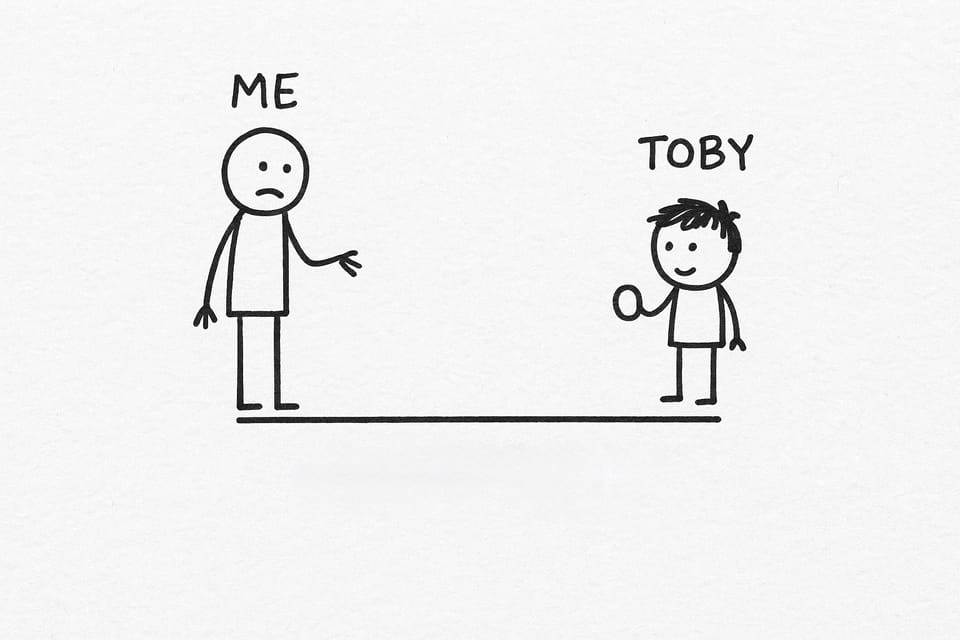
Or: That time everything was perfect until it wasn’t. And what came after.
🔓 This post is free to read — part of the Ritual North public journal.
The Setup
Let’s go back a bit. Not to the very beginning, just far enough to where things still felt sort of manageable.
That’s more or less where this story starts.
I was single.
Not in any noble, poetic way.
Just in the way people do.
I had a job. Rented a house. Ate a suspicious amount of toast.
Emotionally speaking, I was stable.
It wasn’t a bad life. I’d stopped doing actively destructive things. I no longer made decisions based on whether they’d feel good in the next five minutes. From the outside, I probably looked fine.
But the inside was mostly a loop of:
“Is this it?”
“Should I be doing more?”
Enter: Sarah.
No drama. No weird vibes. Just… calm.
She didn’t need to sell herself. Didn’t talk in quotes.
She laughed at my jokes too.
Fast forward.
We moved in together.
Had deeply serious conversations about bin schedules and where mugs should live.
I got a better job. We upgraded the toaster. We started using phrases like “when we have kids.”
Then we found out we were having one.
And here’s the thing, I didn’t panic.
That was the plot twist. I was actually excited.
Not Instagram-excited. Just ready.
We were nesting. Sarah was glowing. I was comparing baby bottles.
Life felt weirdly solid.
And because life is what it is, and the universe is a little bit feral, it was the perfect time for everything to fall apart.
Which, as it turns out, is how life likes you best. When it’s about to slap you in the face.
This Wasn’t in the Birth Plan
There’s the version of childbirth you prep for — antenatal classes, YouTube videos, smug articles written by people who definitely own a baby hammock.
Then there’s what actually happens.
Sarah had been in labour forever. Her waters had broken hours before. The midwives were calm, too calm — like they’d all agreed not to tell us how close we were to a crisis.
Then everything sped up.
Machines beeped. Staff swapped out. Smiles vanished. A new face walked in and immediately took charge. That’s when you know it’s serious — when someone walks in and doesn’t ask questions first.
Emergency C-section. No time to think. Just a blur of scrubs and clipped instructions.
Toby was born.
And after what felt like an eternity — he cried.
That sound was supposed to be the relief. The signal that everything’s okay now.
But nothing felt okay.
Sarah was crashing. Internal bleeding. Sepsis. The team pivoted — she was the new emergency. They rushed her out while I stood there like a prop that hadn’t been given a script.
In the space of an hour, I went from googling prams to sitting alone on a ward trying not to lose it.
Then a doctor sat down next to me. He looked like he was still in training — young, nervous, full of empathy but short on curtain awareness. Because we were still in a shared ward. No privacy. No buffer.
“We think your son has meningitis.”
They took Toby to intensive care.
And I was left there, surrounded by other couples cradling their newborns, beaming and exhausted in that beautiful, naive way.
Nobody said a word.
They just kept looking over. That quiet, guilty kind of look that says, “We’re sorry. But also — thank god it’s not us.”
And I just sat there.
Frozen.
Breaking.
Not knowing if either of them was going to make it.

Okay, Maybe Not
After a few weeks in ICU, we got Toby home.
Sarah, somehow, survived it all and was upright again like nothing had happened.
(If you’ve never seen someone survive sepsis and postpartum surgery and still manage to fold clean clothes - you’ve never met Sarah.)
We were alive. Toby was home.
Technically, we were winning.
We did the new parent thing.
No sleep. Cold toast. The soft hum of existential dread.
I became a professional at holding bottles with one hand and Googling obscure baby symptoms with the other.
Sarah healed. I went back to work. Life - on the surface - resumed.
We renovated the house.
My older kids did school.
Sarah took time off.
We bought curtains.
Lost the tape measure.
You know - life.
We even had a moment, I remember it clearly, where we sat on the sofa and genuinely thought:
“We made it.”
Narrator: They had not made it.
Because then we started watching Toby.
Really watching him.
The way new parents do when the trauma fog lifts just enough to let you remember there’s a list of things babies are supposed to do.
He smiled. He laughed. He liked cuddles.
People called him “chilled,” which is British for “not meeting milestones but let’s give it a minute.”
We waited.
We waited for crawling.
For babbling.
For that first word.
But nothing came.
Instead, we got… quiet.
No pointing. No gestures. No “mama” or “dada.”
We told ourselves the classics:
“Einstein didn’t talk until he was four.”
“The others where the same - late bloomer.”
“He’s just taking his time.”
But the voice in the back of your head doesn’t care about Einstein.
Because your kid isn’t Einstein. Your kid is right here, right now, staring at a ceiling fan like it’s the only thing that understands him - and you can’t stop thinking:
“What if this isn’t just a phase?”
And that’s when it starts.
That quiet internal pivot from:
“He’s just behind,”
to
“We might be on a completely different road.”
And you don’t say it out loud. Not yet.
Because naming it would make it real.
So you smile. You nod. You show people cute photos.
And you wait.
But deep down, a small part of you already knows.
The Quiet Grief
(Grief has great PR...)
There are two kinds of grief.
The loud kind - funerals, floods of tears, quiches.
And the quiet kind. The slow, subtle erosion of a future you’d already started to picture.
This was the second kind.
There wasn’t one dramatic sit-down where a doctor said, “Your son will never speak.”
That’s not how it works.
Instead, there were dozens of tiny moments.
Forms. Assessments. Head tilts.
“Well, let’s see where he is in six months.”
Toby was two. Then three. Then four.
Still no clear words.
No little voice yelling “Dad!” from the stairs.
He can speak. Kind of.
Maybe ten words. Some days, he strings two or three together.
But they’re unclear — more like shapes of words than actual words.
To anyone else, it just sounds like noise.
Only we understand him.
He says “appo” and we know it means apple.
He says “eh-eh” and points, and we know he’s asking for that one Peppa Pig episode.
To the rest of the world, it’s noise.
To us, it’s language.
But it’s not the kind of speech people clap for.
It’s quiet. Private. Invisible unless you know exactly where to look.
And that’s where the grief lives - not in a dramatic headline, but in the little quiet spaces where you realise what’s not going to happen.
You grieve conversations that won’t come.
Questions he won’t ask.
Jokes he won’t tell.
You grieve the future version of him that only exists in your imagination - a version you didn’t even realise you were carrying around until it started dissolving in your hands.
It’s not a grief people get.
There’s no name for it.
No funeral. No “sorry for your loss.”
Just early mornings, long forms, and smiling while someone uses a clipboard to explain that your son is… outside the curve.
So yeah. You cry.
Not in grand cinematic ways.
You cry in the car.
In the bathroom.
In the dog food aisle at Tesco.
Sometimes while holding a tin like it’s offering emotional support.
(And to be fair, it kind of is.)
Then you wipe your face.
Put the tin down.
And get on with it.
Because Toby’s waiting.
And he doesn’t need perfect sentences.
He just needs you to know what he means - before he’s even said it.
The Dog Debacle
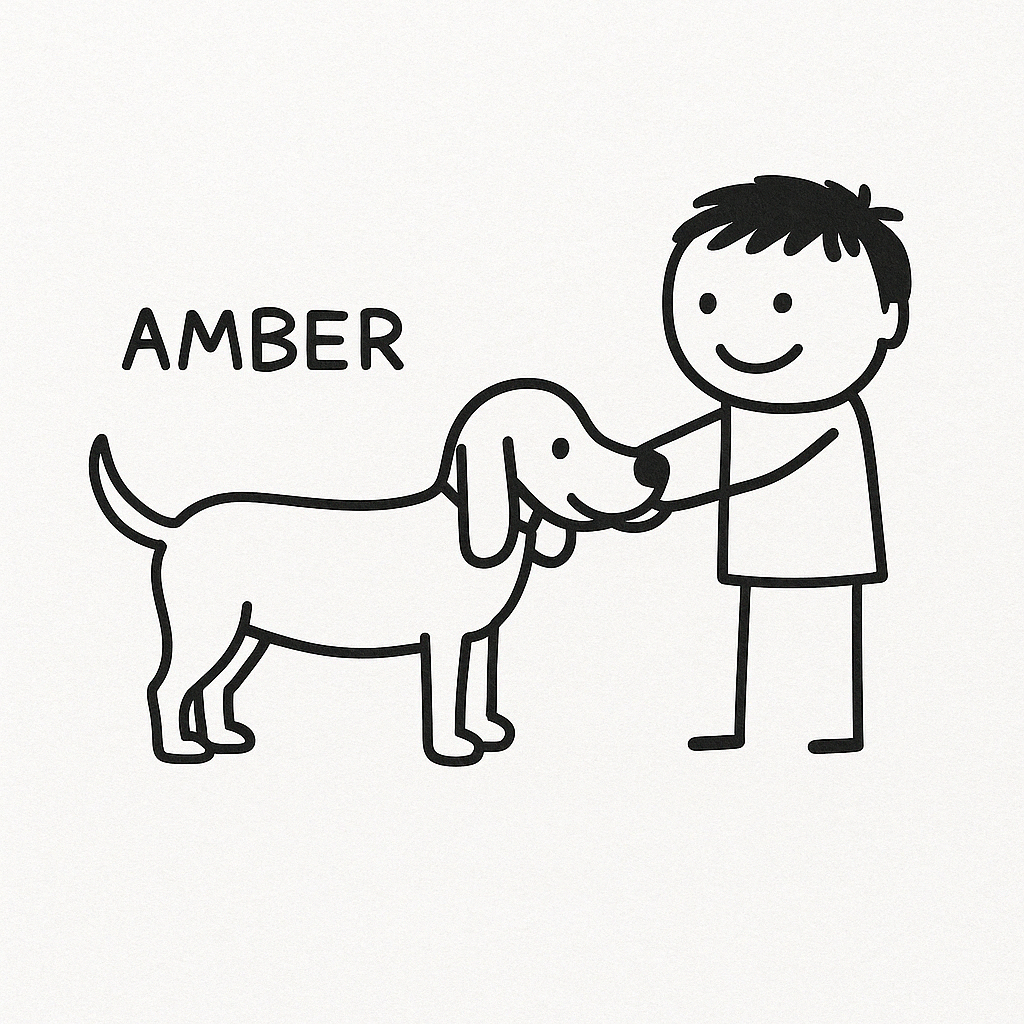
At some point, in a burst of questionable decision-making, we got a dog.
Her name is Amber. She’s a cockapoo.
She came into our house like a furry, high-speed tornado and changed the energy of the place immediately.
The logic - if you can call it that - went something like:
“We’re already overwhelmed. Why not add something that pees indoors, chews cables, and treats 4 a.m. like golden hour?”
Toby was struggling at school, no structure, no outlet for the engine inside him.
We had no support, no backup, and no working understanding of how to raise a puppy.
So naturally, we figured - let’s just add one more moving part to this unstable system.
It was a disaster.
Toby would be mid-meltdown on the floor, and Amber would appear like, “You look overstimulated. I brought enthusiasm.”
She barked. He screamed.
She chased. He bolted.
She chewed cables. He broke toys.
There were moments I found myself in the garden at 6 a.m., holding a chewed TV remote in one hand and a bag full of dog waste in the other, wondering how this became my life.
But somehow… they clicked.
Toby didn’t need Amber to be predictable.
Amber didn’t need Toby to be verbal.
She just existed. No judgment. No expectation.
And he loved her for it.
So yeah - it was a bad idea.
But it turned into one of the good ones.
Because Toby didn’t need perfect conditions.
He just needed something - someone - who could exist in the chaos with him.
Amber was one of the best decisions we ever made.
Note to Self: Don’t Go Abroad Again
We booked a family holiday abroad.
One of those optimistic decisions made in a burst of misguided confidence and an over-reliance on TripAdvisor photos.
It had everything:
Flights. Pools. Beach. Buffet.
We imagined slow-motion laughter, sun-warmed skin, Toby splashing in the shallows while we sipped something cold and congratulated ourselves on having it together.
Here’s what actually happened.
Toby touched the sand and immediately acted like we’d placed him on electrified gravel.
Full-body protest.
Screaming.
Flailing.
Betrayal in his eyes.
Okay. No sand then.
Let’s try the pool.
Nope. Too wet. Too blue. Too something.
He wouldn’t go near it unless he was fully clothed and holding a stick he’d found behind the bins.
Fine. Indoors.
Except he refused to sit in his buggy.
Refused to walk.
Refused to eat.
Refused to sleep.
We were that family.
The one other people stare at and whisper about.
I carried Toby, damp beach towels, an inflatable, and a half-melted KitKat up three flights of stairs while Sarah calmly negotiated with the buffet staff that yes, we really did need six bread rolls and two bananas “for later.”
Every part of the trip was exhausting.
Meals became tactical operations.
Relaxation was a distant rumour.
Every night, Toby woke at unpredictable intervals, as if he were conducting some kind of stress endurance experiment on us.
On the final night, Sarah and I sat at the end of the hotel bed, eating crisps from a napkin while Toby thrashed in the sheets behind us like a haunted eel.
No words were exchanged.
Just a nod.
The kind of nod that says:
“We’ve made a terrible mistake. Let’s never speak of this again.”
We got through it.
And eventually, we even laughed.
Because sometimes, the worst experiences make the best stories - after a decent buffer and a strong drink.
Note to self: Don’t go abroad again.
(We still go abroad; yes, it's still intense.)
The Weight
Here’s the part they don’t write in parenting books.
When you have a child, there’s this built-in assumption - you don’t even realise it’s there until it starts slipping:
They’ll grow up.
Move out.
Send you the occasional sarcastic text.
Maybe buy you socks for Father’s Day.
That’s the arc.
The plan.
The factory setting.
It goes something like this:
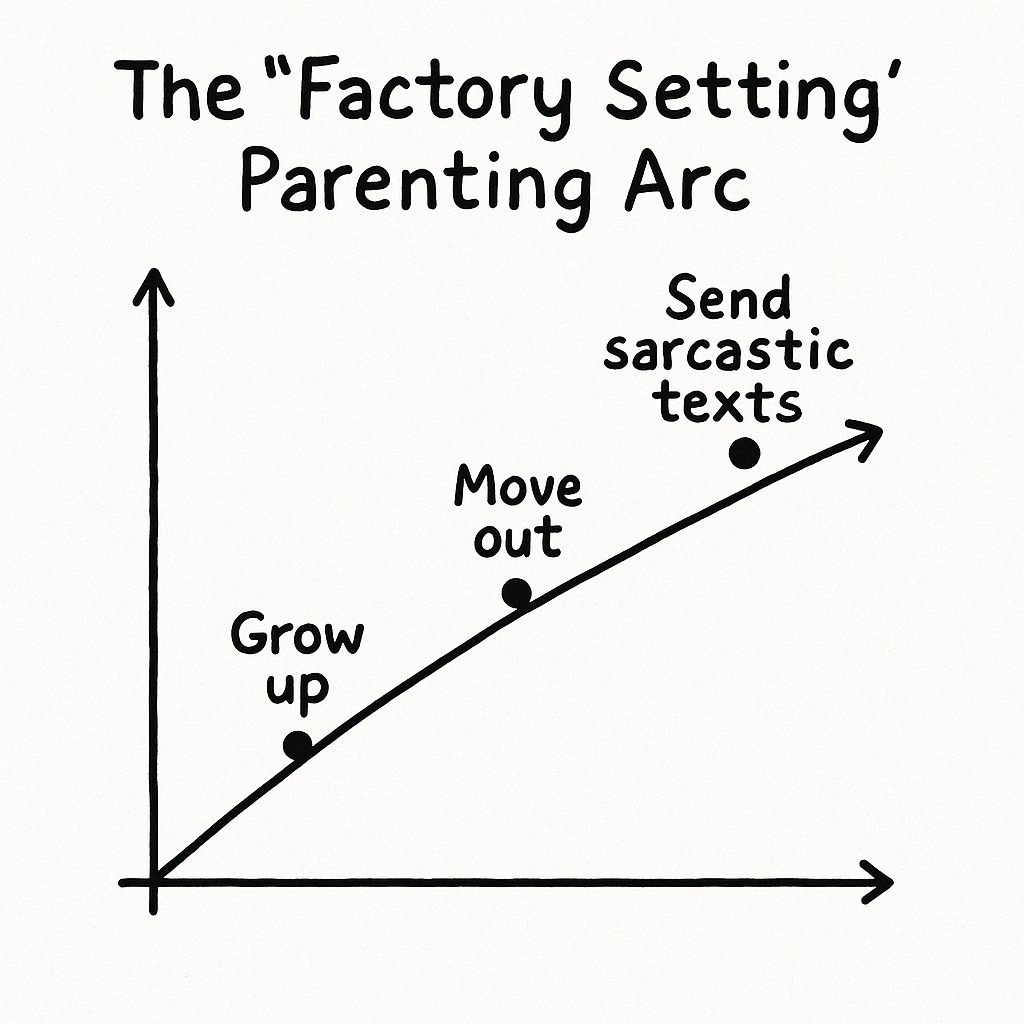
And then, slowly, that assumption starts to fall apart.
At first, it’s subtle.
He’s a bit behind.
He needs extra time.
“He’ll catch up.”
Then the language changes.
You go from “milestones” to “monitoring.”
From “chilled baby” to “developmental delay.”
From “just give it time” to “we need to talk about long-term care.”
And that’s when you start to realise:
This might be permanent.
There’s no graduation date for this.
No slow handover into independence.
No quiet empty-nest phase where you finally learn to paddleboard and buy a greenhouse.
This is forever.
And then come the forms.
The endless, soul-flattening paperwork parade of special needs parenting.
Forms that ask things like:
- “Can your child cross a road unaided?”
- “Can they prepare a meal?”
- “Are they aware of danger?”
And you find yourself saying “No.”
Over and over.
Even when it hurts.
Especially when it hurts.
That’s when it lands:
You’re not raising a child who’ll grow out of this.
You’re raising a child who will always need someone.
It’s heavy.
Not in a dramatic, cinematic way.
In a quiet, daily, spreadsheet and toast way.
You start making contingency plans for things your friends don’t even think about.
What happens if I’m gone?
What happens if I’m not there?
We need a will...
You joke about it.
You build routines around it.
You get weirdly good at carrying it.
Because you don’t get a choice.
This is the game now.
Not the one you signed up for.
But the one you play - with your whole heart, because the alternative is unthinkable.
And even with all that weight...
There’s still joy.
It’s just built different.
Lower to the ground. Quieter. But solid.
The Miracles
Toby doesn’t care about milestones.
He doesn’t care that someone once wrote down a list of things kids are supposed to do by a certain age and put them on a colourful laminated chart.
He’s got his own list.
And it mostly involves power tools.
Toby is happiest outside.
In the garden. Covered in mud and sawdust.
Holding something heavy, preferably loud, ideally a little bit dangerous.
He doesn’t play. He builds.
He smashes things, then fixes them, then smashes them again for quality assurance.
It’s not chaos. It’s process.
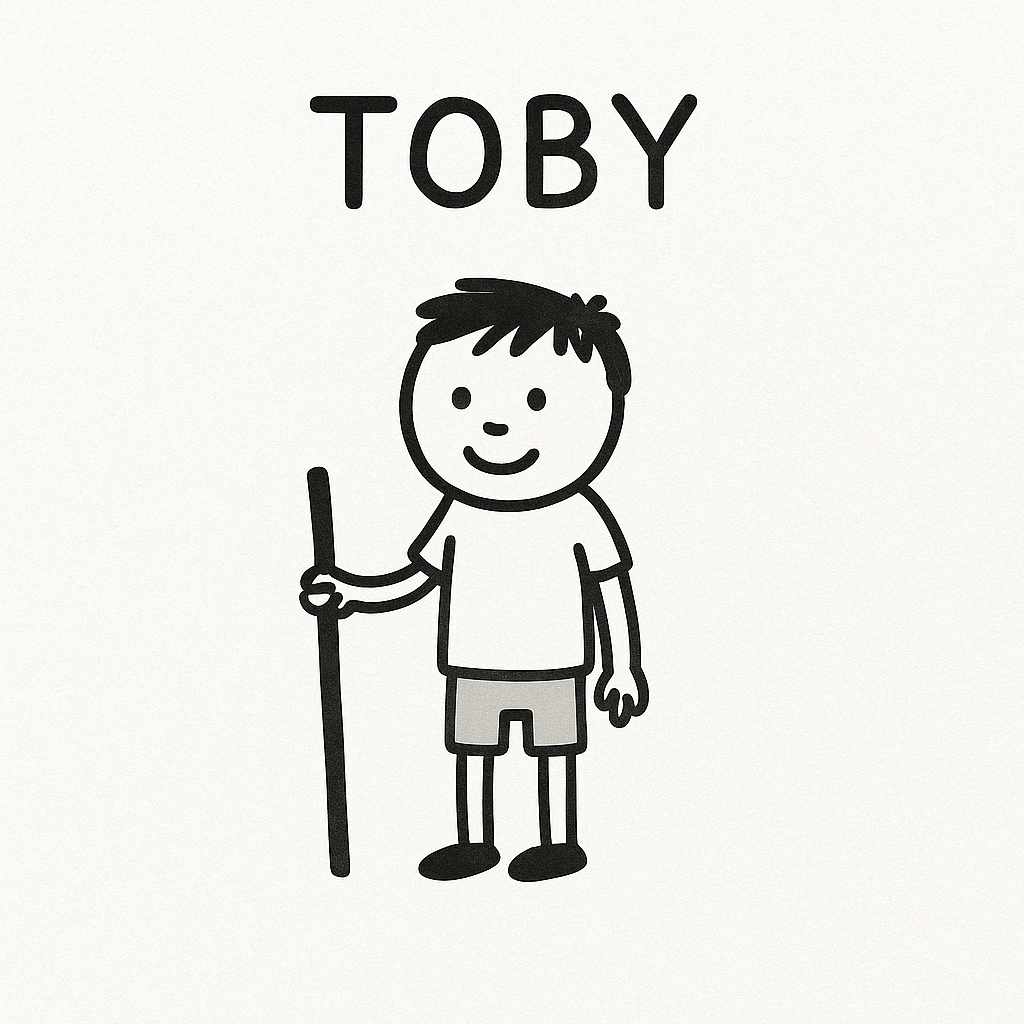
He loves drills.
Hammers.
Screwdrivers.
The sound of a socket wrench clicking into place is his theme tune.
He’s not trying to be clever. He just wants to do.
Give him a plastic toy and he’ll drop it.
Give him a broken strimmer and he’ll carry it around like a prized possession.
Give him a cable tie and a clamp and you won’t see him for an hour - until he’s built something you don’t fully understand.
And you look at him, filthy and focused, eyes locked on whatever he’s working on, and you realise:
“This is him talking.”
This is how he expresses joy.
This is how he tells us who he is.
Not with words. With movement. With work. With things.
Toby doesn’t speak in the way the world expects.
But out there, in the garden, with a drill in one hand and a stick in the other - he’s loud and clear.
These are the milestones we get:
- Hours spent using the impact driver.
- Reorganised his shed, again.
- Found some joy with a toy.
- Only woke up ten times last night.
No one’s giving out certificates for that.
But maybe they should.
Because he’s not behind.
He’s just elsewhere.
And honestly? It’s kind of better over there.
So, Apparently He’s Not a Mainstream Kind of Guy
There’s a moment that happens to a lot of parents with kids like Toby.
At first, you fight to keep them in mainstream school.
Because you think that’s what’s “normal.”
Because you think that’s what they deserve.
Because the words special needs school still feels like a verdict, not a setting.
So you push.
You fill in forms.
You go to meetings.
You ask for support.
You cling to the idea that with just a few tweaks, everything will click into place.
But it doesn’t.
The gap keeps growing.
Mainstream school is built like a motorway - fast, efficient, built for volume.
Toby was driving a tractor.
We started getting the notes. The looks. The meetings.
The “can we have a quick word?”
Not bad people - just a system not designed for Toby.
And then comes the realisation:
“We’re not helping him by keeping him here.”
That’s the worst part.
You think you’re protecting him by insisting he belongs.
But all he feels is confused, left out, overwhelmed.
So you make the call.
You fill in the EHCP paperwork that reads like a slow, clinical unravelling of your child’s abilities.
You Google local special needs schools and quietly delete your browser history because it feels like betrayal.
These are the hard yards.
But... eventually you visit one.
And suddenly… everything clicks.
No one’s staring.
No one’s comparing.
The staff speak Toby’s language - even when he doesn’t speak at all.
There’s space.
Patience.
Understanding.
Not as a favour. Just as the baseline.
It broke me a bit.
Not because it was bad.
Because it was right.
And I’d spent so long avoiding it, I hadn’t realised we were running from the very thing that would change his life.
And it did.
Mine too.
It probably saved me.
Special needs school isn't second best.
It’s not less than.
It’s exactly what was needed.
And once we accepted that - really accepted it, we got to watch him start again.
On his own terms.
With people who saw him fully, the first time.
And now?
He has friends.
Why This Matters
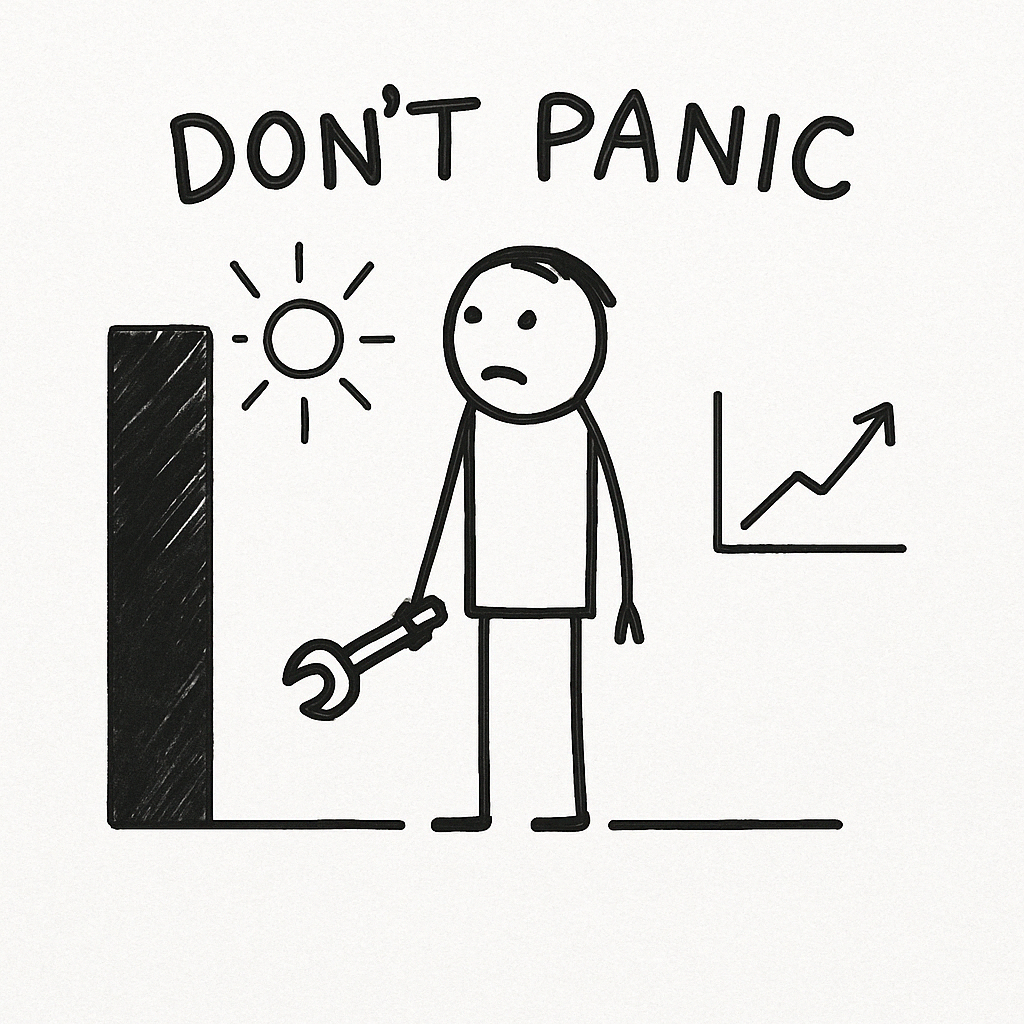
So why write any of this?
Because most of the time, when people talk about kids like Toby, they tidy it up.
They make it soft. Neat. Inspirational.
They say things like, “He’s non-verbal but he lights up every room,” or “He teaches us something new every day.”
And yeah, sure - he does.
But also?
He screams.
He breaks things.
He floods bathrooms.
He's pretty angry.
He can’t be left alone for three minutes unless you want to discover toast in the tumble dryer and a garden hose turned on indoors.
It’s hard.
It’s relentless.
It’s heartbreaking.
But it’s also the realest love I’ve ever known.
I used to think legacy was about big things.
Jobs. Status. Some version of success people would talk about when I wasn’t around.
Now? I think it’s about being there.
Really being there.
For someone who needs you.
Every day.
Every hour.
Whether you feel like it or not.
Toby never asked for this life.
Didn’t choose the start he got.
Didn’t pick the body or brain or wiring he lives with.
But he shows up.
And smiles.
And builds things with cable ties and muddy hands like it’s the most normal thing in the world.
And when I sit next to him - watching him line up sockets and spanners and occasionally offer me a stick like it’s currency - I know I’m exactly where I’m supposed to be.
This isn’t the life I planned.
But it’s the one that matters.
And I wouldn’t trade it for anything.
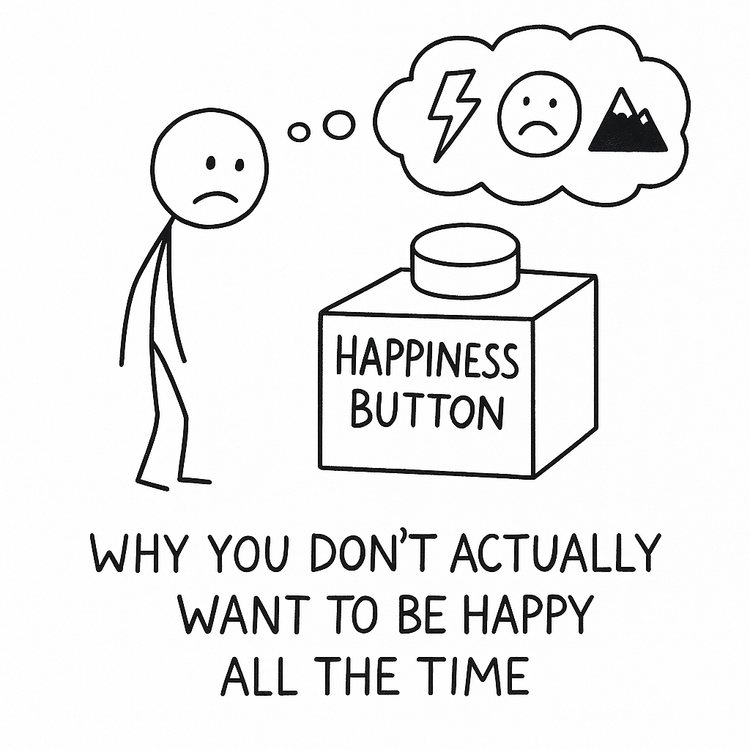
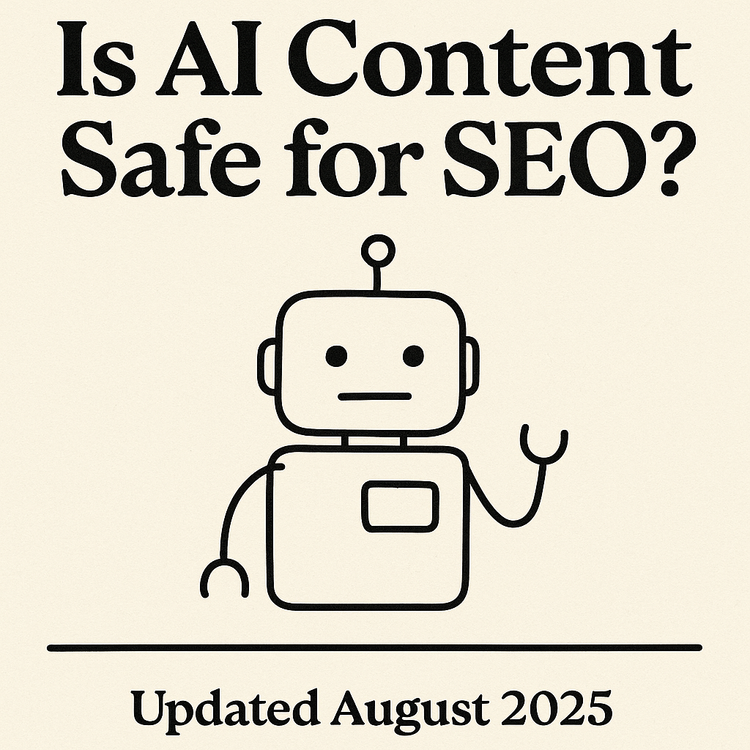
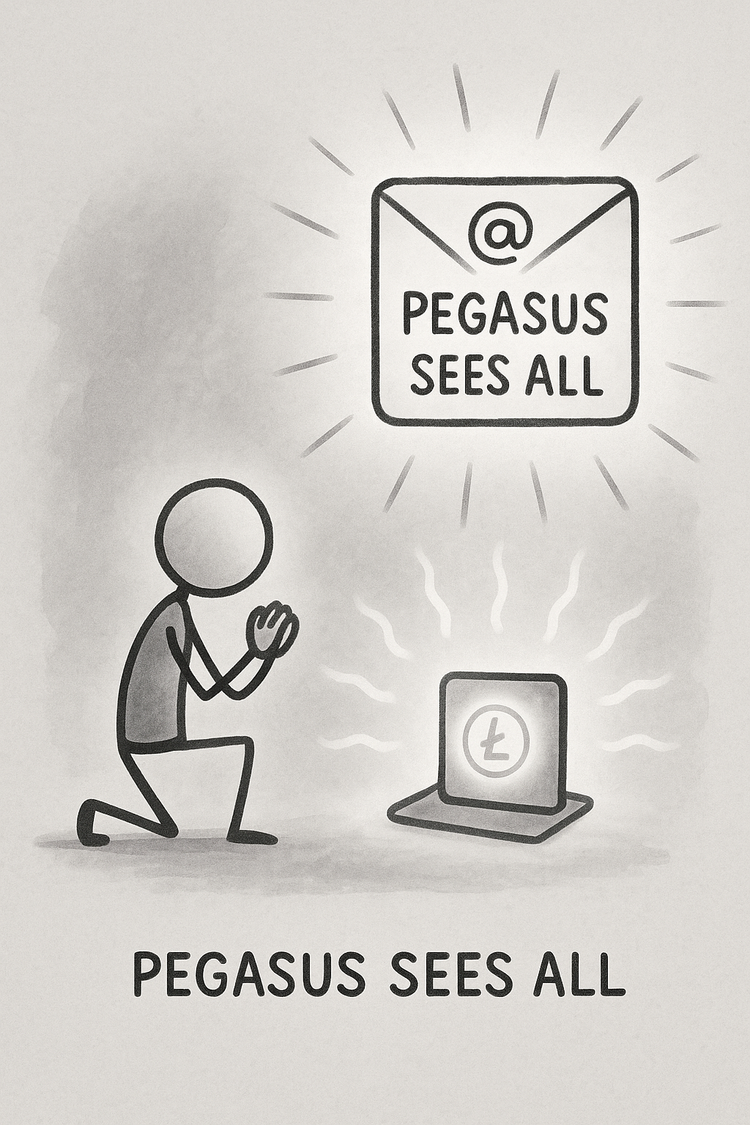
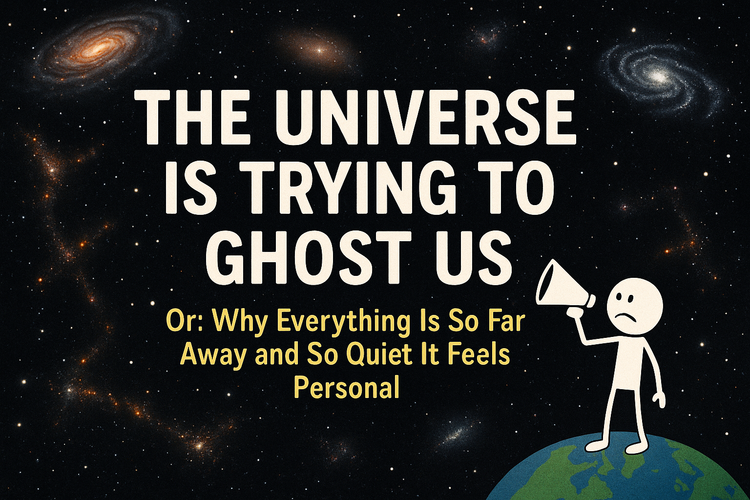
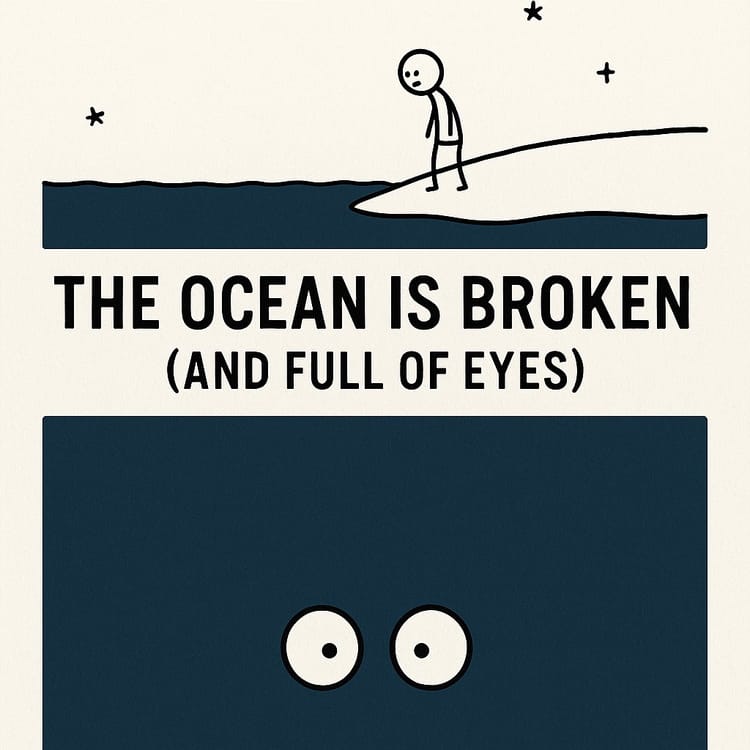
Member discussion